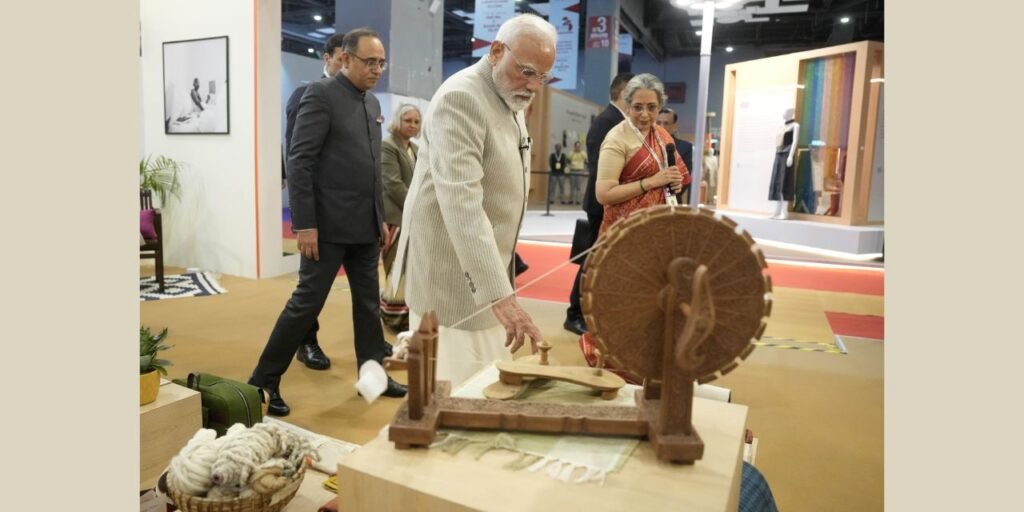
Bharat Tex has evolved into a premier global platform fostering collaboration, engagement, and partnerships among policymakers, CEOs, and industry leaders worldwide, according to Prime Minister Narendra Modi.
The event serves as a vibrant showcase of India’s rich cultural heritage through its diverse range of traditional garments. From the intricate Lucknowi chikankari to Gujarat’s bandhani and patola, as well as Banarasi silk, Kanjivaram silk, and Kashmiri pashmina, Bharat Tex highlights the nation’s textile legacy.
India witnessed a 7% growth in textile and apparel exports last year, solidifying its position as the sixth-largest exporter in the sector globally. With exports reaching ₹3 lakh crore, the country aims to scale this figure to ₹9 lakh crore by 2030.
A skilled workforce is essential for any industry to thrive, and the textile sector is no exception. The Prime Minister emphasized the importance of skill development, highlighting initiatives such as the Samarth scheme and National Centres of Excellence, which aim to enhance talent and create employment opportunities.
In the age of advancing technology, preserving the authenticity of handloom craftsmanship is crucial. The government has actively promoted handloom products through over 2,400 large-scale marketing events and the India-hand-made e-commerce platform, encouraging artisans and boosting their reach in global markets.
As the world embraces the concept of ‘Fashion for Environment and Empowerment,’ India is poised to lead the way. With sustainability embedded in its textile traditions, the country is enhancing these practices with modern innovations. Khadi, tribal textiles, and the use of natural dyes reflect India’s deep-rooted commitment to eco-friendly fashion.
Addressing the challenge of fast fashion waste, which threatens environmental sustainability, the Prime Minister highlighted India’s potential to transform this issue into an opportunity. By leveraging traditional recycling and upcycling techniques, such as crafting mats, rugs, and fine quilts from discarded fabrics, India can play a pivotal role in the global circular economy. Initiatives like MoUs with public enterprises and pilot projects for textile waste collection are already underway to drive this change.
Bharat Tex has grown into a landmark event, attracting participation from over 120 countries, offering Indian entrepreneurs a platform to expand their businesses globally. The event fosters investment, drives exports, and strengthens India’s position as a global textile hub. As India progresses towards becoming a developed nation, the textile sector is set to play a crucial role in shaping its economic future.
The Prime Minister concluded by expressing confidence that Bharat Tex will continue to break new ground, driving the industry’s growth and success in the years to come.
